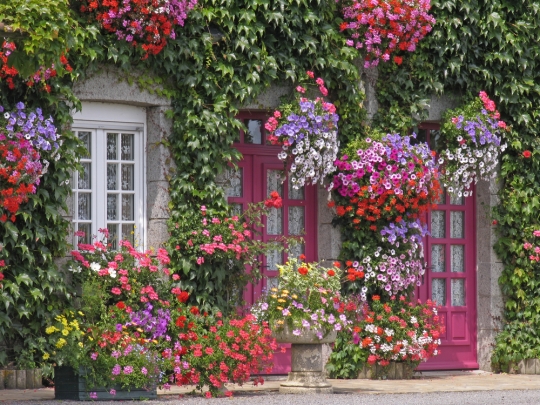Some of us might be lucky enough to embark on a new life in France with the financial means to buy a dream property outright. But for many, establishing a home in ‘the Hexagone’ requires a helping hand from the bank.So where do you start when it comes to looking at your borrowing options in France? And how do you make the right choice?
Understanding The Rules
The good news is that migrants and French borrowers are typically the same in the eyes of French lenders, with just a little more paperwork required for non-residents. Normally, under a French mortgage (known as a prêt immobilier), buyers can borrow between 70 and 80 percent of the value of a property. However, this might be slightly less if you are older, or not from a country in the European Union.
How much you can borrow exactly is based on the value of the property, and your income. Unlike in some countries where the ‘third of your income’ rule is just a guide, France proactively prevents situations where borrowers could find themselves putting a significant chunk of their monthly earnings towards mortgage repayments. Legally, a borrower’s regular monthly living expenses – including credit card repayments, insurance and bills – must be a maximum of 33 percent of their net household income. If a borrower in France manages to obtain credit beyond this, they may not be obliged to make the repayments.
As in other countries, you’ll need to be able to show all of the necessary identity documents, proof of a stable income and a history of saving in order to obtain a mortgage in France. However, unlike in the UK, French lenders tend not to factor in ‘buy-to-let’ plans when deciding whether you’re eligible, so anticipated rental income from the property you’re wanting to buy won’t be taken into account.
There are other rules to consider which will require more money on top of your deposit. One to keep in mind is the mandatory requirement that most banks have for borrowers to take out life insurance. If a couple are applying for the mortgage, they may need to be insured separately. It’s also common to put the mortgage in just one of a couple’s names, although both would still be responsible for repayments.
Know Your Options
While a buy-to-let mortgage is rare in France, there are other mortgage types with which you’ll probably already be familiar.
Interest-only: A go-to option for investors who can’t select their usual buy-to-let mortgage, interest-only mortgages in France come with strict eligibility criteria, shorter loan life spans and higher rates of interest. The borrower’s monthly payments can be reduced significantly due to the interest being deducted against rental income.
Fixed and variable rate mortgages: With interest rates currently so low, fixed-rate mortgages are seen as a secure bet for borrowers for perhaps the duration of a mortgage. Variable mortgage rates are typically more attractive, but future forecasting is difficult.
You may come across mortgage product features you’re not used to, such as ‘flexible’ fixed-rate mortgages that allow borrowers to adjust their monthly payments within certain limits. This is useful in cases where borrowers might expect to experience a sudden surge – or decline – in income. However, be mindful of mortgage features that you don’t need and which may leave you needing to repay more unnecessarily.
Bridging loans: These are short-term loan solutions for situations where you may be ready to buy, but still waiting to sell your current property.
Re-mortgaging: A notary or financial lender is your best first port of call before deciding on a re-mortgage option, as they can make you aware of the risks and associated costs. Re-mortgaging is not popular in France and can be an expensive, difficult option for an existing French mortgage. It usually requires a thorough explanation of what the released property equity would be used for.
Borrowers who are resident in France may also be able to access subsidised or government-regulated mortgages. These are designed for lower-income earners and apply to main residences only, so they can’t be used for holiday homes or investments.
Work With Someone You Trust
International or local mortgage brokers are likely to help you secure the best bank offers and conditions. Bilingual brokers are advantageous for obvious reasons if your French finance and legal vocabulary isn’t the strongest. Brokers receive a bank commission, and they may charge you arrangement and other fees. When finding the right broker, look for recommendations, professionals who have experience and property market knowledge, and those who put finding the right product for you before their commission.
It’s recommended that you steer clear of brokers requiring upfront, non-refundable fees. Plus remember that you’ll be dealing with your broker for a while – the average mortgage in France takes a few months to finalise! The same goes for notaries.
Read The Fine Print
Different mortgages have different conditions, of course, and it’s especially important to be fully aware of the Ts and Cs against which you’re borrowing. You may face early redemption penalties if you pay your mortgage off too quickly, for example. On top of this, French banks charge monthly or annual fees for the privilege of having an account, a debit card and accessing online banking. There’s also stamp duty, estate agent and land registry fees to add to the pile.
By exploring your French mortgage options with some essential working knowledge behind you, you’re bound to find the perfect fit, and encounter no nasty surprises.

